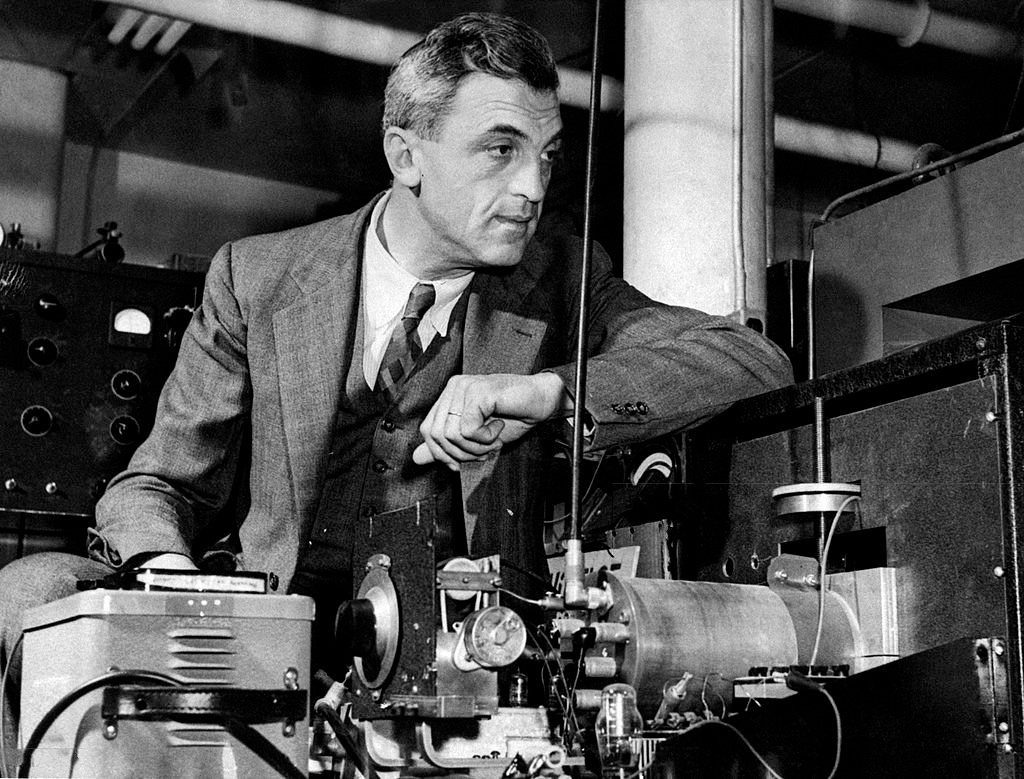|
Lee Giles
Clyde Lee Giles is an American computer scientist and the David Reese Professor at the College of Information Sciences and Technology at the Pennsylvania State University. He is also Graduate Faculty Professor of Computer Science and Engineering, Courtesy Professor of Supply Chain and Information Systems, and Director of the Intelligent Systems Research Laboratory. He was Interim Associate Dean of Research. His graduate degrees are from the University of Michigan and the University of Arizona and his undergraduate degrees are from Rhodes College and the University of Tennessee. His PhD is in optical sciences with advisor Harrison H. Barrett. His academic genealogy includes two Nobel laureates (Felix Bloch and Werner Heisenberg), Arnold Sommerfeld and prominent mathematicians. Research Giles has been associated with the computer science or electrical engineering departments at Princeton University, the University of Pennsylvania, Columbia University, the University of Pisa, the Uni ... [...More Info...] [...Related Items...] OR: [Wikipedia] [Google] [Baidu] |
Memphis, Tennessee
Memphis is a city in the U.S. state of Tennessee. It is the County seat, seat of Shelby County, Tennessee, Shelby County in the southwest part of the state; it is situated along the Mississippi River. With a population of 633,104 at the 2020 United States census, 2020 U.S. census, Memphis is the List of municipalities in Tennessee, second-most populous city in Tennessee, after Nashville, Tennessee, Nashville. Memphis is the fifth-most populous city in the Southeastern United States, Southeast, the nation's List of United States cities by population, 28th-largest overall, as well as the largest city bordering the Mississippi River. The Memphis metropolitan area includes West Tennessee and the greater Mid-South (region), Mid-South region, which includes portions of neighboring Arkansas, Mississippi and the Missouri Bootheel. One of the more historic and culturally significant cities of the Southern United States, Memphis has a wide variety of landscapes and List of neighborhoods in ... [...More Info...] [...Related Items...] OR: [Wikipedia] [Google] [Baidu] |
Pennsylvania State University
The Pennsylvania State University (Penn State or PSU) is a public state-related land-grant research university with campuses and facilities throughout Pennsylvania. Founded in 1855 as the Farmers' High School of Pennsylvania, Penn State became the state's only land-grant university in 1863. Today, Penn State is a major research university which conducts teaching, research, and public service. Its instructional mission includes undergraduate, graduate, professional and continuing education offered through resident instruction and online delivery. The University Park campus has been labeled one of the " Public Ivies", a publicly funded university considered as providing a quality of education comparable to those of the Ivy League. In addition to its land-grant designation, it also participates in the sea-grant, space-grant, and sun-grant research consortia; it is one of only four such universities (along with Cornell University, Oregon State University, and University of Hawa ... [...More Info...] [...Related Items...] OR: [Wikipedia] [Google] [Baidu] |
University Of Pennsylvania
The University of Pennsylvania (also known as Penn or UPenn) is a private research university in Philadelphia. It is the fourth-oldest institution of higher education in the United States and is ranked among the highest-regarded universities by numerous organizations and scholars. While the university dates its founding to 1740, it was created by Benjamin Franklin and other Philadelphia citizens in 1749. It is a member of the Ivy League. The university has four undergraduate schools as well as twelve graduate and professional schools. Schools enrolling undergraduates include the College of Arts and Sciences, the School of Engineering and Applied Science, the Wharton School, and the School of Nursing. Among its highly ranked graduate schools are its law school, whose first professor wrote the first draft of the United States Constitution, its medical school, the first in North America, and Wharton, the first collegiate business school. Penn's endowment is US$20.7 billi ... [...More Info...] [...Related Items...] OR: [Wikipedia] [Google] [Baidu] |
Princeton University
Princeton University is a private research university in Princeton, New Jersey. Founded in 1746 in Elizabeth as the College of New Jersey, Princeton is the fourth-oldest institution of higher education in the United States and one of the nine colonial colleges chartered before the American Revolution. It is one of the highest-ranked universities in the world. The institution moved to Newark in 1747, and then to the current site nine years later. It officially became a university in 1896 and was subsequently renamed Princeton University. It is a member of the Ivy League. The university is governed by the Trustees of Princeton University and has an endowment of $37.7 billion, the largest endowment per student in the United States. Princeton provides undergraduate and graduate instruction in the humanities, social sciences, natural sciences, and engineering to approximately 8,500 students on its main campus. It offers postgraduate degrees through the Princeton Schoo ... [...More Info...] [...Related Items...] OR: [Wikipedia] [Google] [Baidu] |
Arnold Sommerfeld
Arnold Johannes Wilhelm Sommerfeld, (; 5 December 1868 – 26 April 1951) was a German theoretical physicist who pioneered developments in atomic and quantum physics, and also educated and mentored many students for the new era of theoretical physics. He served as doctoral supervisor for many Nobel Prize winners in physics and chemistry (only J. J. Thomson's record of mentorship is comparable to his). He introduced the second quantum number ( azimuthal quantum number) and the third quantum number ( magnetic quantum number). He also introduced the fine-structure constant and pioneered X-ray wave theory. Early life and education Sommerfeld was born in 1868 to a family with deep ancestral roots in Prussia. His mother Cäcilie Matthias (1839–1902) was the daughter of a Potsdam builder. His father Franz Sommerfeld (1820–1906) was a physician from a leading family in Königsberg, where Arnold's grandfather had resettled from the hinterland in 1822 for a career as Cour ... [...More Info...] [...Related Items...] OR: [Wikipedia] [Google] [Baidu] |
Werner Heisenberg
Werner Karl Heisenberg () (5 December 1901 – 1 February 1976) was a German theoretical physicist and one of the main pioneers of the theory of quantum mechanics. He published his work in 1925 in a breakthrough paper. In the subsequent series of papers with Max Born and Pascual Jordan, during the same year, his matrix formulation of quantum mechanics was substantially elaborated. He is known for the uncertainty principle, which he published in 1927. Heisenberg was awarded the 1932 Nobel Prize in Physics "for the creation of quantum mechanics". Heisenberg also made contributions to the theories of the hydrodynamics of turbulent flows, the atomic nucleus, ferromagnetism, cosmic rays, and subatomic particles. He was a principal scientist in the German nuclear weapons program during World War II. He was also instrumental in planning the first West German nuclear reactor at Karlsruhe, together with a research reactor in Munich, in 1957. Following World War II, he was appoint ... [...More Info...] [...Related Items...] OR: [Wikipedia] [Google] [Baidu] |
Felix Bloch
Felix Bloch (23 October 1905 – 10 September 1983) was a Swiss- American physicist and Nobel physics laureate who worked mainly in the U.S. He and Edward Mills Purcell were awarded the 1952 Nobel Prize for Physics for "their development of new ways and methods for nuclear magnetic precision measurements."Sohlman, M (Ed.) ''Nobel Foundation directory 2003.'' Vastervik, Sweden: AB CO Ekblad; 2003. In 1954–1955, he served for one year as the first Director-General of CERN. Felix Bloch made fundamental theoretical contributions to the understanding of ferromagnetism and electron behavior in crystal lattices. He is also considered one of the developers of nuclear magnetic resonance. Biography Early life, education, and family Bloch was born in Zürich, Switzerland to Jewish parents Gustav and Agnes Bloch. Gustav Bloch, his father, was financially unable to attend University and worked as a wholesale grain dealer in Zürich. Gustav moved to Zürich in 1890 to become a Sw ... [...More Info...] [...Related Items...] OR: [Wikipedia] [Google] [Baidu] |
Academic Genealogy
An academic, or scientific genealogy organizes a family tree of scientists and scholars according to mentoring relationships, often in the form of dissertation supervision relationships, and not according to genetic relationships as in conventional genealogy. Since the term ''academic genealogy'' has now developed this specific meaning, its additional use to describe a more academic approach to conventional genealogy would be ambiguous, so the description scholarly genealogy is now generally used in the latter context. Overview The academic lineage or academic ancestry of someone is a chain of professors who have served as academic mentors or thesis advisors of each other, ending with the person in question. Many genealogical terms are often recast in terms of academic lineages, so one may speak of academic descendants, children, siblings, etc. One method of developing an academic genealogy is to organize individuals by prioritizing their degree of relationship to a mentor/ad ... [...More Info...] [...Related Items...] OR: [Wikipedia] [Google] [Baidu] |
National Federation Of Advanced Information Services (NFAIS) Miles Conrad Award
National Federation of Advanced Information Services (NFAIS) was a United States non-profit institutional membership organization of content and technology providers, specifically those that support the authoritative information needs and activities of professionals across a spectrum of scholarly disciplines and fields of research. The organization provided analysis, news alerts and educational services to its more than sixty members. On July 1, 2019, NFAIS merged with the National Information Standards Organization and ceased independent operations. Formation and growth In 1957, the former Soviet Union launched the world’s first spacecraft, Sputnik. This event generated a wave of intense competition in science and technology in the industrialized nations, but one of the rationales offered publicly to Western politicians at the time was that the Soviets had leapt ahead in the space race because they had a more unified and orderly approach to the organization and dissemination of sc ... [...More Info...] [...Related Items...] OR: [Wikipedia] [Google] [Baidu] |
IEEE Computational Intelligence Society (CIS) Neural Networks Pioneer Award
The Institute of Electrical and Electronics Engineers (IEEE) is a 501(c)(3) professional association for electronic engineering and electrical engineering (and associated disciplines) with its corporate office in New York City and its operations center in Piscataway, New Jersey. The mission of the IEEE is ''advancing technology for the benefit of humanity''. The IEEE was formed from the amalgamation of the American Institute of Electrical Engineers and the Institute of Radio Engineers in 1963. Due to its expansion of scope into so many related fields, it is simply referred to by the letters I-E-E-E (pronounced I-triple-E), except on legal business documents. , it is the world's largest association of technical professionals with more than 423,000 members in over 160 countries around the world. Its objectives are the educational and technical advancement of electrical and electronic engineering, telecommunications, computer engineering and similar disciplines. History Origin ... [...More Info...] [...Related Items...] OR: [Wikipedia] [Google] [Baidu] |
INNS Gabor Award
Inns are generally establishments or buildings where travelers can seek lodging, and usually, food and drink. Inns are typically located in the country or along a highway; before the advent of motorized transportation they also provided accommodation for horses. History Inns in Europe were possibly first established when the Romans built their system of Roman roads two millennia ago. Many inns in Europe are several centuries old. In addition to providing for the needs of travelers, inns traditionally acted as community gathering places. Historically, inns provided not only food and lodging, but stabling and fodder for the travelers' horses, as well. Famous London examples of inns include The George and The Tabard. However, there is no longer a formal distinction between an inn and several other kinds of establishments: many pubs use the name "inn", either because they are long established and may have been formerly coaching inns, or to summon up a particular kind of image ... [...More Info...] [...Related Items...] OR: [Wikipedia] [Google] [Baidu] |







